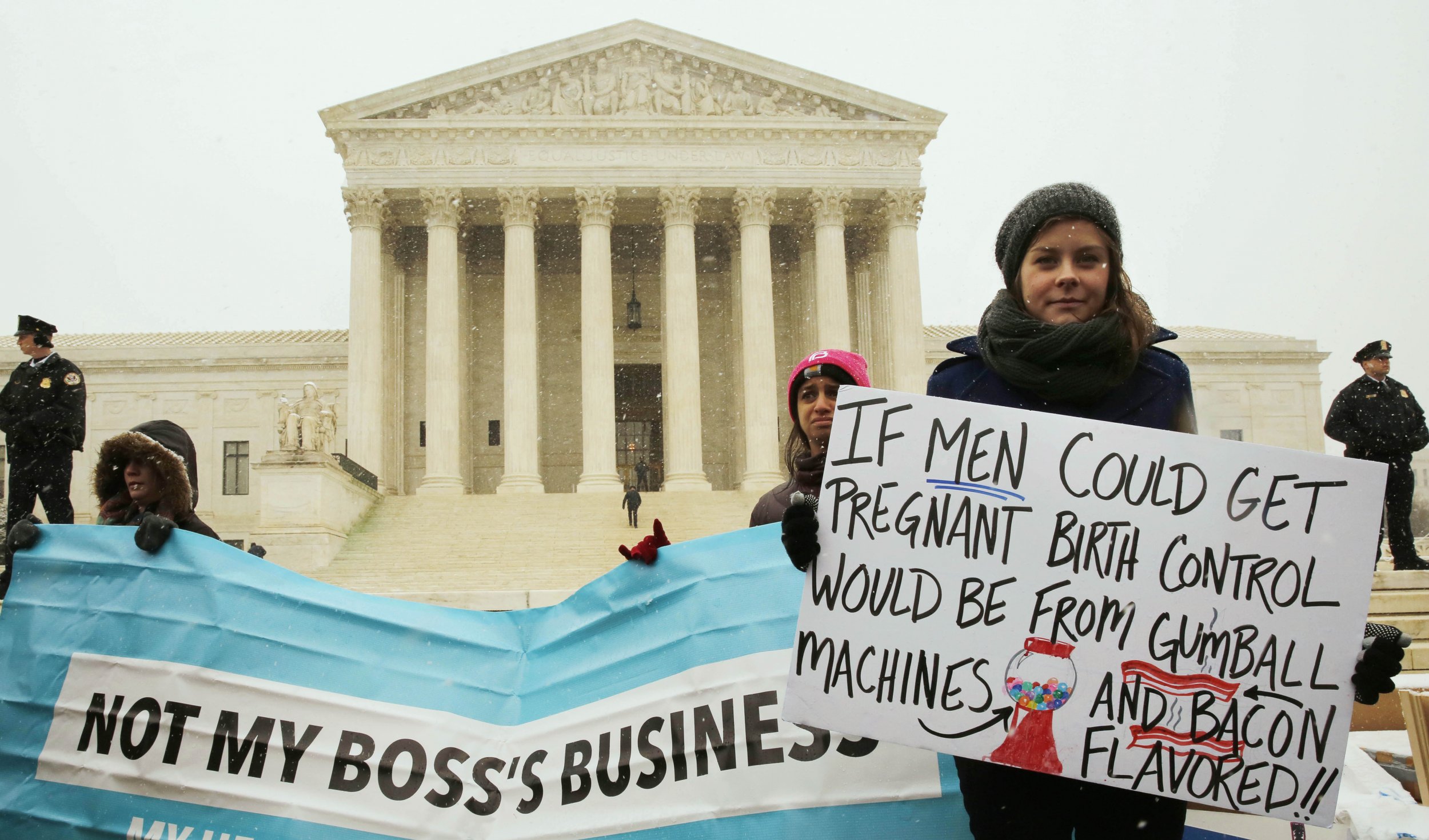
Can religious believers give themselves a free pass to ignore laws that bind everyone else? Common sense and the Constitution say no.
Yet religious institutions are now maintaining that they alone may judge whether their religious exercise is "substantially burdened" and thus entitled to special privileges under the law; this claim will soon be argued before the Supreme Court in the cases consolidated as Zubik v. Burwell.
Like Hobby Lobby, these cases involve the Affordable Care Act "contraception mandate," which requires health plans to cover contraceptives without co-pays or other "cost-sharing" beyond the employee's contribution to the plan premium.
Churches and other "houses of worship" do not have to provide this coverage. Religious colleges, hospitals and similar nonprofits may opt out by notifying the government of their objections and supplying the name and contact information of their plan insurer or administrator.
The government, in turn, notifies the insurer or administrator which then provides contraceptive coverage directly to employees without cost-sharing and without the religious nonprofit's payment or participation. (A nonprofit may also bypass the government and give notice directly to its insurer or administrator.)
The religious nonprofits in these cases complain that the opt-out violates the Religious Freedom Restoration Act (RFRA). RFRA excuses religious believers and institutions from complying with any law that "substantially burdens" their religious exercise, unless the government proves that the burden is the "least restrictive means" of advancing a "compelling government interest."
This means that when a law significantly interferes with someone's religion, RFRA excuses that person from obeying the law, unless the government shows that the law is the best way of achieving an exceptionally important government goal—something the government often cannot do.
The religious nonprofits are not just asking that the court excuse them from the contraception coverage requirement and the opt-out but that it also allow them to block their insurers and administrators from providing the coverage directly to employees.
If the nonprofits prevail, their employees will not receive contraception coverage, and will have to pay the full cost out of their own pockets with after-tax wages.
One of the pending cases illustrates the unprecedented nature of these claims. The Little Sisters of the Poor is an order of Roman Catholic nuns that operates nursing homes for the poor and elderly using employees of all faiths. The Little Sisters object to covering contraceptives in their employee health plan and to notifying the government of this objection.
The Little Sisters believe that giving the government notice would make them complicit in the sin of contraception use, by permitting the government to use their plan administrator to supply contraceptive coverage directly to their employees.
Although a regulatory quirk prevents the government from enforcing the direct-coverage requirement against the administrator, the Little Sisters insist they are "substantially burdened" by the mere possibility that their administrator might voluntarily provide contraception coverage to employees.
To top this argument off, the Little Sisters declare that no court may decide whether or not this possibility qualifies as a "substantial burden" under RFRA, claiming that their interpretation of "substantial burden" is a "religious question" immune from judicial review.
One need not question the Little Sisters' sincerity to realize that they seek an unjustified and dangerously broad application of RFRA. The lower courts have overwhelmingly rejected these claims, and for good reason: affording relief from a "burden" so exceedingly slight, without even letting a court consider whether it is truly "substantial," would contradict congressional purpose, Supreme Court precedent and the rule of law.
Congress expected the courts to decide whether legal burdens claimed by believers are weighty enough to justify RFRA relief; RFRA's principal co-sponsors in the Senate, Edward Kennedy and Orrin Hatch, each declared that some burdens on religion are simply not significant enough to excuse one from obeying the law.
Likewise, in Supreme Court exemption cases decided prior to RFRA—the very precedents RFRA was meant to restore—the court ruled on the seriousness and weight of alleged burdens on religion. Most important, courts must decide whether a burden is "substantial" to uphold the rule of law.
"No man is allowed to be a judge in his own cause," as James Madison put it in The Federalist Papers. Madison was right—no one can act as an impartial judge of his or her own case, and religious institutions are no exception. It is folly to make the government prove compelling interests and least restrictive means for every federal law a believer might think to call a "substantial burden" on religious exercise.
Congressional purpose, Supreme Court precedent and the rule of law all compel denial of the RFRA exemptions sought by the Little Sisters and the other Zubik claimants. No less an authority than Justice Scalia warned against holding every law that affects religion "presumptively invalid" unless it protects a compelling interest.
The court should heed his warning.
Frederick Mark Gedicks is Guy Anderson Chair and professor of law at Brigham Young University and the author of "Substantial' Burdens : How Courts May (and Why They Must) Judge Burdens on Religion under RFRA. The opinions expressed here are his own.
Uncommon Knowledge
Newsweek is committed to challenging conventional wisdom and finding connections in the search for common ground.
Newsweek is committed to challenging conventional wisdom and finding connections in the search for common ground.
About the writer
To read how Newsweek uses AI as a newsroom tool, Click here.








